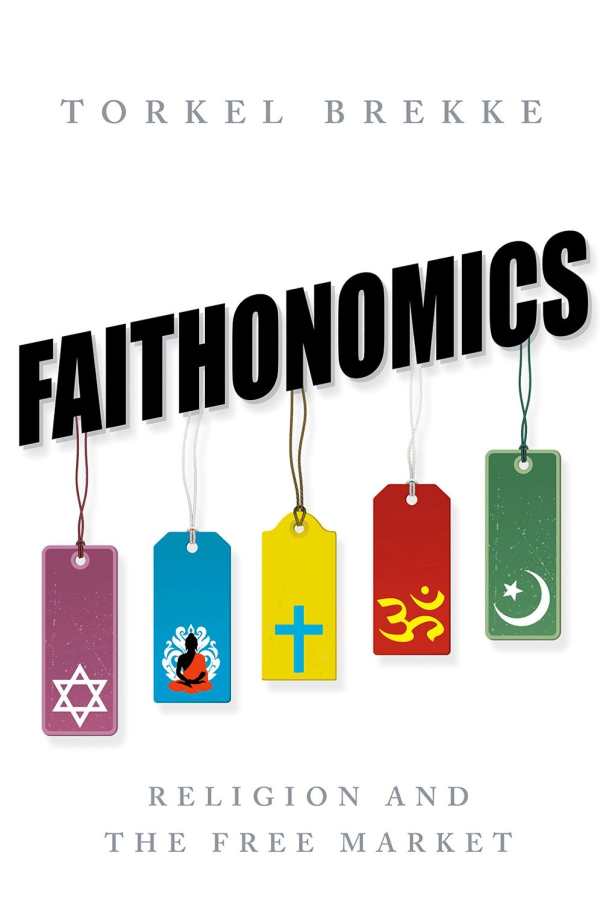Faithonomics
Religion and the Free Market
This is a unique, refreshing, and even hopeful look at the interplay between faith and government.
Faithonomics: Religion and the Free Market, by Torkel Brekke, makes the argument that the absence of government involvement is best for religions. As the free market leads to balance for the economy, according to Brekke, so too would a free market for religion open the way for stability and keep extremism from thriving.
The book begins by examining how religion functions in today’s market environment, asking intriguing questions like “What’s the difference between going to church and getting a haircut?” and calling the American and French governments to account for believing they are neutral toward religion when they really are not. Then, Brekke delves into the history of major world religions, showing how centuries of religious and government interaction have created today’s contentious climate. Finally, the work presents seven examples of ways that today’s governments favor, discriminate, or otherwise regulate religious groups, showing in each instance how such practices have unforeseen and negative consequences.
These arguments are supported using the study of history, modern-day religion, economic principles, and sound logic. The book is neither antireligious nor antigovernment; it simply presents the effects of the interactions between the two entities. The incorporation of the notion of a “free market” suggests that, like other products and services, religions can best be regulated in the manner of a free exchange, rather than through government control or privileges.
Though the book relies upon strong academic research, its tone is plainspoken and clear, resulting in an excellent balance of insightfulness and concision. Its conclusions will be most applicable to religious and governmental leaders, whom it can help to see beyond the haze of privilege, regulation, and control, to instead focus on new possibilities.
This clear-minded approach to understanding religions helps to clarify some of how today’s world became so fraught with religious extremism, and what can be done about it. A basic familiarly with economic principles is helpful, but Brekke gives people across disciplines the background they need to apply the principles within to the topics at hand.
Faithonomics takes a unique, refreshing, and even hopeful look at the interplay between faith and government.
Reviewed by
Melissa Wuske
Disclosure: This article is not an endorsement, but a review. The publisher of this book provided free copies of the book to have their book reviewed by a professional reviewer. No fee was paid by the publisher for this review. Foreword Reviews only recommends books that we love. Foreword Magazine, Inc. is disclosing this in accordance with the Federal Trade Commission’s 16 CFR, Part 255.

